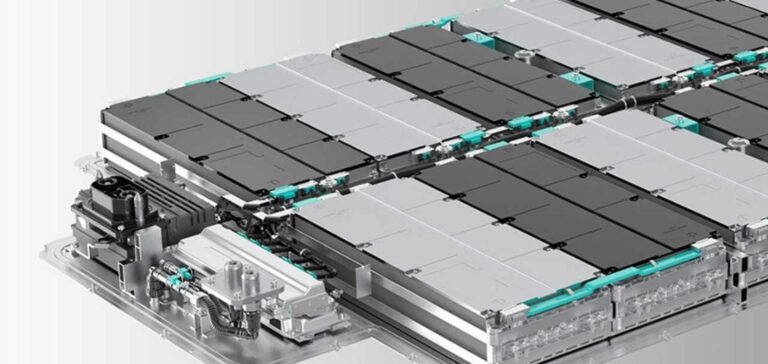The Automotive Cells Company (ACC), a joint venture between Stellantis, TotalEnergies, and Mercedes, has achieved a significant milestone with the commercialization of the first electric batteries made in France. Located in Billy-Berclau (Pas-de-Calais), the factory aims to be a key player in Europe’s energy transition, as the European Union prepares to ban new combustion-engine vehicles by 2035.
Launched in 2023, the factory targets gradual ramp-up. After producing 2,000 battery packs in 2024, ACC plans to reach 150,000 car-equivalent batteries in 2025, then up to 2.5 million by 2030, securing a 20% market share in Europe. The ambition is clear: reduce Europe’s reliance on Asian manufacturers, who currently dominate the market.
Technical Expertise in Development
At this facility, operations demand advanced technological expertise. The battery cells, based on NMC (nickel-manganese-cobalt) technology, are integrated into Peugeot and Opel vehicles. However, this innovation comes with a steep learning curve. As Matthieu Hubert, ACC’s Secretary General, noted, early stages were marked by frequent breakdowns and lengthy adjustments. Despite these challenges, the commercialization rate of batteries quickly reached 98%.
Economic and Technological Challenges
This initiative aligns with a broader European strategy to reshore critical productions. However, ACC faces numerous challenges, particularly regarding price competitiveness. Currently, batteries account for 40% of an electric vehicle’s total cost. Europe, with its high production costs, must compete with Asian factories benefiting from economies of scale.
Government support, although crucial during the initial stages, has been reduced, further complicating local manufacturers’ competitiveness. To address this, ACC temporarily suspended its foreign expansion plans, focusing instead on consolidating technical expertise and production volumes.
A European Strategy for the Battery Industry
Billy-Berclau’s gigafactory is the only operational battery factory in France at the moment. Of the four planned projects, two have French capital and two are Asian-owned. This highlights the intense competition in the sector, where technologies evolve rapidly. Building strong local champions is essential to ensure Europe’s energy independence.
ACC thus positions itself as a pioneer, though its goals remain ambitious. As Pierre Paturel, an analyst at Xerfi, explains, the challenge lies in improving competitiveness against Asia and incorporating cutting-edge technologies to meet future market demands.






















